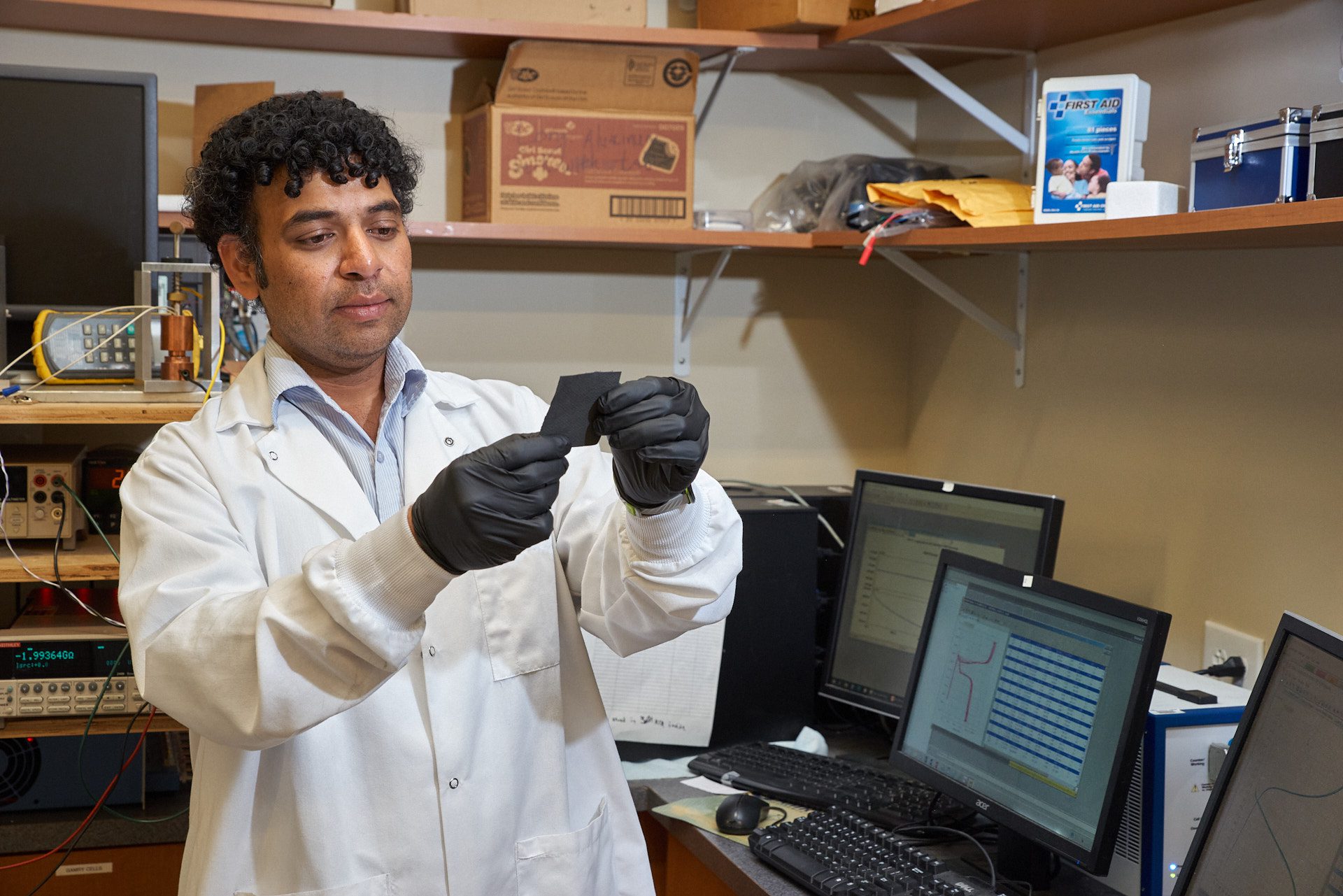Ramakrishna Podila Honored as Fellow of Institute of Physics

CLEMSON, S.C. – Renowned physicist Ramakrishna Podila has been named a Fellow of the Institute of Physics, recognizing his significant contributions to modern condensed matter and applied physics.
The Institute of Physics, a prestigious professional society based in the United Kingdom and Ireland, boasts approximately 21,000 members worldwide. Podila, a materials physicist at Clemson University, expressed his gratitude for the honor.
“It’s an honor to be selected as a Fellow of the Institute of Physics. Having a panel of peer reviewers who you do not know and with whom you have not collaborated telling you that you are deserving, is humbling,” Podila said.
Immediate Impact
Podila’s research is characterized by its interdisciplinary nature, bridging physics, chemistry, biology, and materials science. His work has focused on energy conversion and storage, nano-bio interfaces, and photonics and bioimaging.
Key Details Emerge
His pioneering contributions in nanoscience have led to the discovery of new phenomena in low-dimensional materials, with applications in energy, health, and photonics. Podila has notably advanced the field of energy storage, particularly through the development of next-generation supercapacitors and batteries.
Podila’s research on triboelectric nanogenerators (TENG) has propelled advancements in ambient energy harvesting.
Industry Response
Podila’s work has been supported by major agencies such as the National Science Foundation, National Institutes of Health, NASA, and the U.S. Army. His research has also attracted interest from global companies.
By the Numbers
- Authored over 100 scholarly publications
- Two U.S. patents held
- One paper listed in the top 1% of cited articles in materials chemistry
What Comes Next
Podila’s research group is exploring new directions in quantum mechanics and quantum biology. They aim to uncover quantum effects in biological environments, potentially impacting the understanding of viral replication and evolution.
“Quantum biology, I think, is going to be the next big thing,” Podila said. “I hope it starts a new body of work in applying quantum to how viruses replicate and in general, that could have impact on how evolution happens.”
Background Context
Podila received his master’s in physics from the Indian Institute of Technology at Roorkee in 2007 and his Ph.D. in condensed matter physics from Clemson in 2011. He joined Clemson as an assistant professor in 2015 and was promoted to associate professor in 2020.
While at Clemson, Podila has been recognized with several awards, including the Roaring10 Award and the Rising Star in Discovery Award.
Expert Analysis
According to Podila, the boundaries between scientific disciplines are increasingly blurred. “Physics is at its core, but we venture out into different areas, like energy, health, and optics,” he noted, emphasizing the multidisciplinary nature of his work.
As Podila and his team continue their groundbreaking research, the impact of their findings could extend far beyond the confines of physics, potentially transforming our understanding of both technology and biology.






